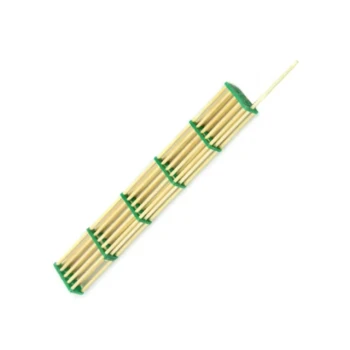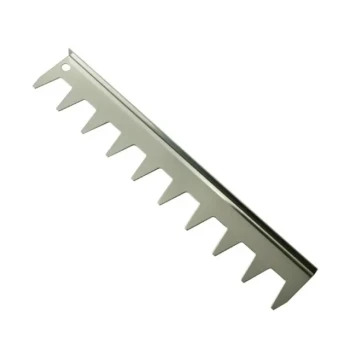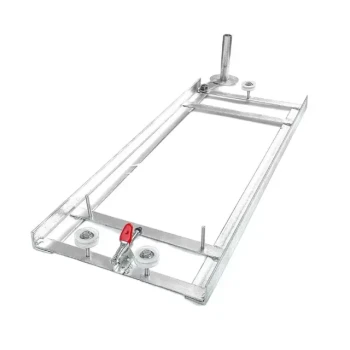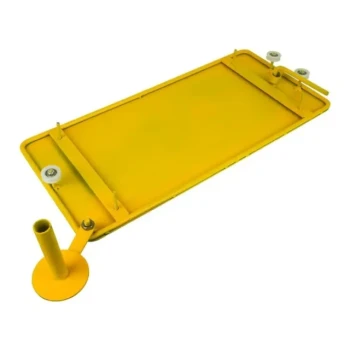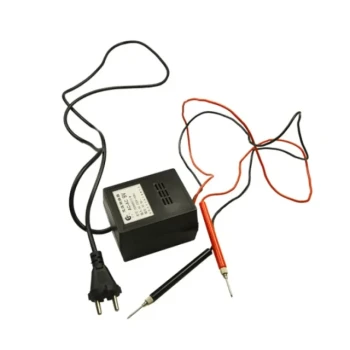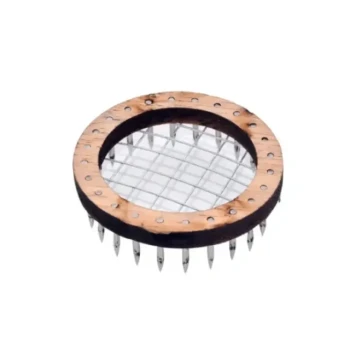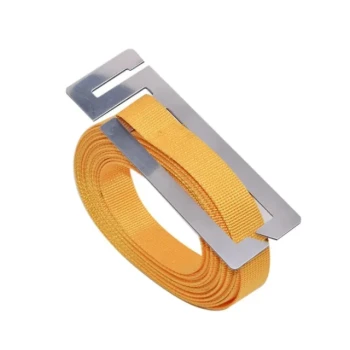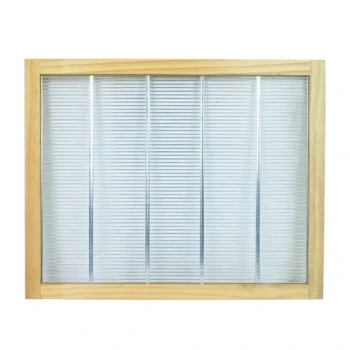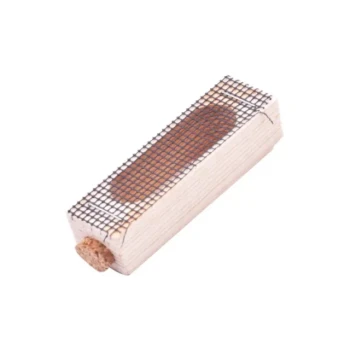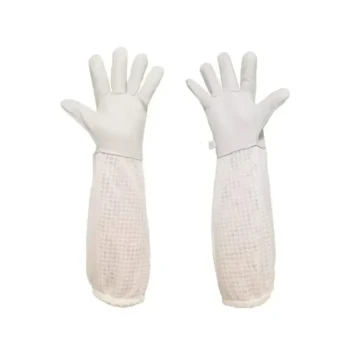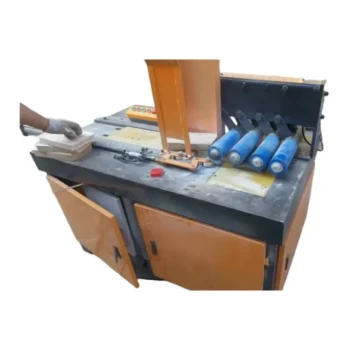In short, wire mesh helps maintain airflow by providing passive ventilation. This constant air exchange is crucial for managing the hive's internal environment, allowing excess moisture and heat to escape while ensuring a steady supply of fresh air. This single component helps prevent mold, reduces the bees' workload for cooling, and removes waste gases.
The use of wire mesh, typically as a screened bottom board, is more than just a ventilation tool. It's a comprehensive environmental management system that addresses hive temperature, humidity, air quality, pest control, and sanitation in one integrated solution.
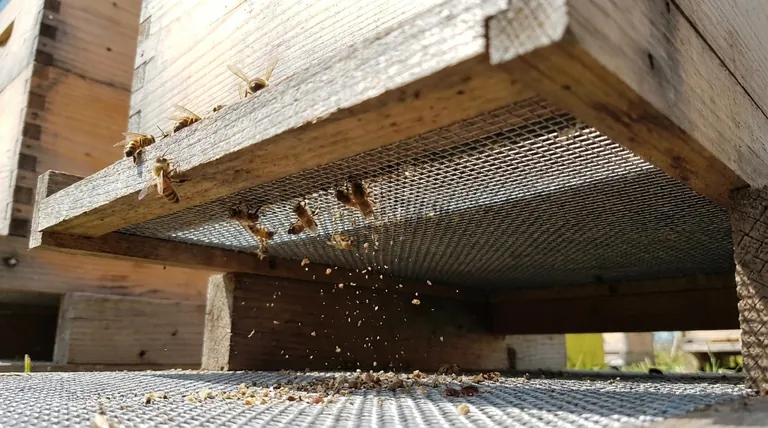
The Role of Ventilation in Hive Health
A beehive is a living organism that breathes. Just like any closed environment, it requires a constant exchange of air to remain healthy and stable. Wire mesh flooring provides a large, passive surface for this exchange to occur.
Preventing Moisture Build-up
A colony of bees produces a significant amount of water vapor through respiration. Without proper ventilation, this moisture condenses on the inner surfaces of the hive, especially during cool nights.
This condensation creates a damp environment that is ideal for the growth of mold and fungus, which can spoil honey stores and harm the bees. A mesh floor allows this warm, moist air to sink and exit the hive, drastically reducing humidity levels.
Regulating Hive Temperature
Bees work tirelessly to maintain a stable internal hive temperature. In hot weather, they fan their wings at the entrance to create airflow and cool the hive.
A wire mesh floor provides a large, open area for hot air to escape, significantly reducing the energy bees must expend on cooling. This allows them to focus on other vital tasks like foraging and brood care.
Improving Air Quality
Respiration not only produces water but also carbon dioxide (CO2). In a poorly ventilated hive, CO2 levels can build up, stressing the colony.
The passive airflow through a mesh floor ensures that CO2 and other waste gases are continuously flushed out, maintaining a healthy, oxygen-rich environment for the bees.
Practical Advantages of Wire Mesh Floors
Beyond simple airflow, using wire mesh as a bottom board offers significant advantages for hive management and pest control.
Integrated Pest Management
One of the most significant benefits is in controlling Varroa mites, a devastating parasite for honeybees.
When mites fall off a bee, they can drop straight through the mesh and out of the hive. This prevents them from climbing back onto another bee, breaking their life cycle and reducing the overall mite load within the colony.
Simplified Cleaning and Debris Removal
A screened bottom board acts as a self-cleaning floor. Debris such as wax cappings, pollen, and dead bees naturally fall through the mesh.
This prevents the accumulation of waste on the hive floor, which can harbor pests and diseases. Many beekeepers place a removable "sticky board" underneath the mesh to easily monitor mite drop and clean out debris without disturbing the colony.
Understanding the Trade-offs
While highly beneficial, a wire mesh floor requires some management knowledge to be used effectively, particularly concerning climate and material choice.
Winter Management Considerations
In colder climates, a fully open mesh floor can create an excessive draft during winter, potentially chilling the colony.
For this reason, most screened bottom boards are designed to be used with a removable insert or solid board. This board can be slid into place under the mesh to close off the hive for winter and removed in the spring to resume ventilation.
Choosing the Right Material
The type of wire mesh impacts durability and function.
- Stainless steel is the most durable and corrosion-resistant option, offering the longest service life.
- Black epoxy-coated mesh provides excellent rust protection and absorbs solar heat, which can help warm the hive in cooler weather.
- Galvanized mesh is a common, cost-effective choice that is rust-resistant and durable.
The Importance of Correct Sizing
The mesh openings must be sized correctly, typically around 2.5mm. This size is large enough for Varroa mites and debris to fall through but small enough to prevent the bees from passing through or getting stuck.
Making the Right Choice for Your Apiary
A screened bottom board is a powerful tool for modern beekeeping. The decision to use one should be based on your specific climate and management goals.
- If your primary focus is hive health and low maintenance: A wire mesh floor is a superior choice for its combined benefits in ventilation, pest control, and sanitation.
- If you are in a very cold climate: Use a wire mesh floor with a removable insert to gain summer ventilation benefits while providing necessary winter protection.
- If your primary focus is maximum durability: Invest in stainless steel mesh for its unparalleled corrosion resistance and longevity.
By strategically managing your hive's airflow, you transition from simply keeping bees to actively engineering a healthier, more resilient colony.
Summary Table:
| Key Function | Benefit for the Hive |
|---|---|
| Passive Ventilation | Removes excess heat, moisture, and CO2; prevents mold. |
| Pest Control | Helps manage Varroa mite populations by breaking their life cycle. |
| Sanitation | Allows debris to fall through, keeping the hive floor clean. |
| Temperature Regulation | Reduces the energy bees expend on cooling the hive. |
Ready to engineer a healthier, more resilient apiary?
As a trusted supplier for commercial apiaries and distributors, HONESTBEE provides durable, correctly-sized wire mesh solutions and other essential beekeeping equipment. Our wholesale-focused operations ensure you get the reliable supplies you need to maximize hive health and productivity.
Contact our team today to discuss your apiary's needs and discover the HONESTBEE difference.
Visual Guide

Related Products
- Langstroth Screen Bottom Board for Beekeeping Wholesale
- Australian Pine Wood Langstroth Screen Bottom Board for Wholesale
- Professional Bamboo Queen Isolation Cage
- Stainless Steel 9 Frame Hive Spacer Durable Precise for Commercial Beekeeping
- HONESTBEE Professional Frame Wiring Board and Jig
People Also Ask
- How should the screened bottom board be used throughout the year? A Guide for Healthy Hives
- What are the benefits of a screened bottom board? Boost Hive Health & Control Varroa Mites
- What are the main benefits of using a Screened Bottom Board in beekeeping? Enhance Hive Health & Productivity
- What are the benefits of using a screened bottom board for beehives? Improve Ventilation & Mite Control
- What are some considerations when choosing between solid and screened bottom boards? Optimize Hive Health & Pest Control


